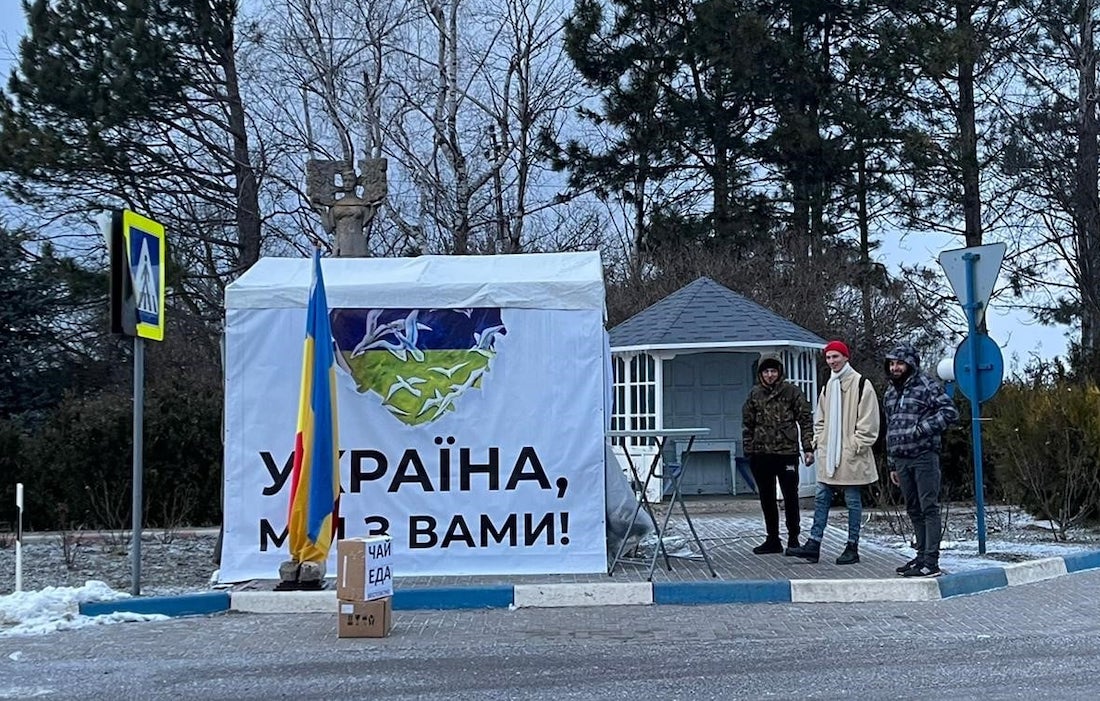For Hungarians, it’s hard to reconcile in our heads the wide-armed embrace for Ukrainian refugees – over 400,000 of them arrived in Hungary by 11 April – with the massive anti-migration propaganda pushed to extremes by Viktor Orbán’s government since 2015. Here, we see how this plays out on the ground.
Independent civil society groups, NGOs and local community members have pulled out all the stops in Hungary to help Ukrainians fleeing their war-torn country. Meanwhile, Hungarian authorities are too slow and ill-equipped. especially when the freshly re-elected government tries to boost the number of arrivals to maximise EU emergency funding intended for refugees.
“We are more than safe here, we have a place to live. We are from Kyiv. Many people have lost their houses and they don't know what to do. Many people in Ukraine don’t speak English, so we’re here just so they’re not so lost. We arrived on 16 March. Some friends took us from the railway station. We were under the wings of locals, but many here don’t know anybody. That’s why they’re lost, and that’s why we are here,” says Tanja, a Ukrainian girl accompanied by her mother (names have been changed upon her request) at the pop-up refugee welcome centre installed in the BOK stadium, near Budapest’s Eastern Station.
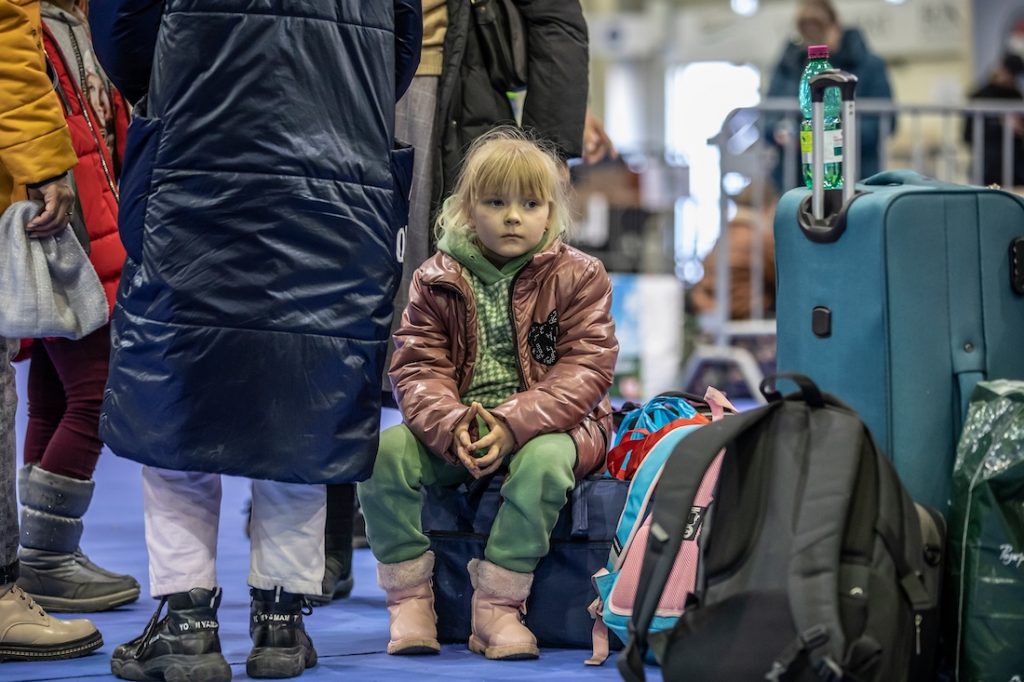
When speaking to Voxeurop, Tanja and her mother aimed to go to Keleti station to help as volunteer translators, but were told that everyone had moved to the BOK stadium. The Eastern Railway station had become the main arrival hub for the refugees, where dozens of helpers provided for those arriving in need, as authorities barely coordinated with civil society efforts. That was until the Orbán government, elected for the fourth consecutive time on 3 April, recognized the (financial) opportunity in state-level support.
Since then, the Hungarian government has falsely claimed to the media that it was PM Orbán’s letter that caused the European commission to consider allocating REACT-EU emergency funds for responding to the situation in Ukraine. Just last year, the Fidesz government refused to accept money from the same fund, arguing that the conditions were unacceptable. Then there was a sudden U-turn. On 18 March the PM asked in a letter to the European Commission for 300 million euro from the REACT-EU money pot.
After that letter was sent, the government’s approach towards Ukrainian refugees has shifted.
The Eastern Railway Station (Keleti Pályaudvar) had been buzzing with self-organized volunteer groups and humanitarian NGOs offering free food, drinks, diapers, free wifi, translation and travel advice at pop-up stands and desks.
After registration, there are free train services (solidarity tickets) for those who have already crossed the Ukrainian-Hungarian border. These dedicated trains take people to Kőbánya-Felső station on the outskirts of Budapest. From here, free shuttles bring them to the BOK stadium.
Since the shift in government approach, only a pre-selected pool of NGOs are allowed to provide help at BOK stadium. Volunteers are turned away if not registered, and the state provides virtually no accommodation. Everything is done voluntarily, using private housing.
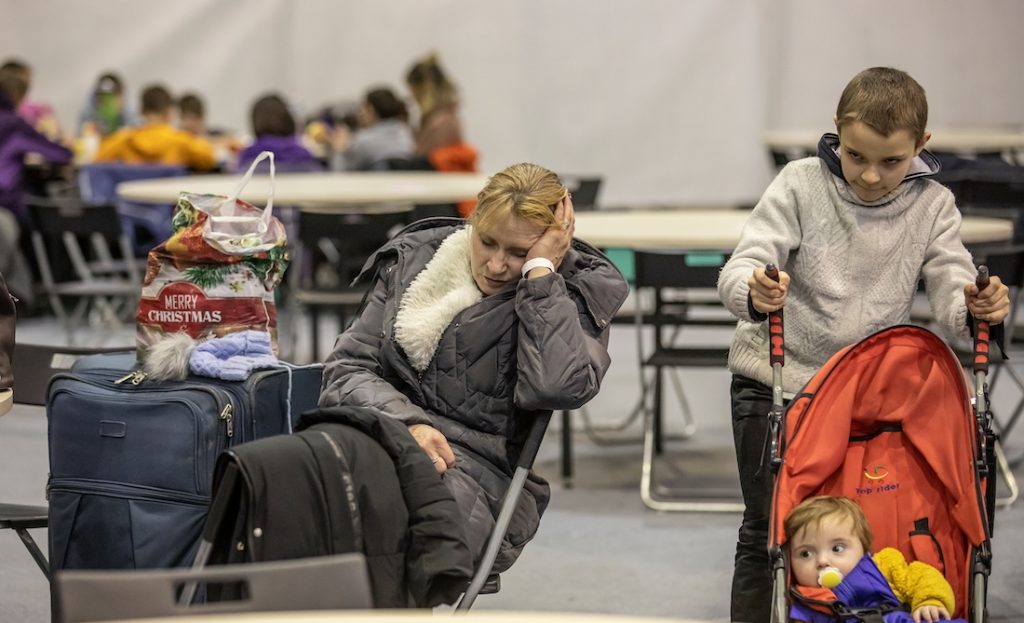
The autonomous support network responsible for virtually every task under the remit of the Katasztrófavédelem (Hungary’s disaster response agency) was said to be taken over by government authorities, the efficiency of which is highly questionable.
In return for REACT-EU resources, governments should deliver services detailed in the European Union’s Temporary Protection Directive. It lists responsibilities like providing the basics of food and shelter, but also social services like psychological help for those in need, childcare (crèches and kindergarten), contraception for teenagers, the list goes on.
For years, the Orbán government demonised the mostly Afghani, Syrian and Iraqi refugees approaching its borders. The same campaign of deceit would obviously not work this time round. Especially when the refugees are white, Christians from a neighbouring country
However, Viktoria Horvath from the NGO Migration Aid told Voxeurop that all the above and more remain hollow promises from authorities, and services are still overwhelmingly provided by NGOs and civil society.
In a written response to our questions, Mukics Dániel from the Katasztrófavédelem explained sharply that the disaster response agency performs on-the-spot assessments 24/7, arranges accommodation and travel, and organises support. What this representative did not say is that due to accommodation being offered by private companies and NGOs in the absence of available official shelters, human traffickers have been searching for vulnerable people, especially young women. Ms Horvath from Migration Aid confirms that human trafficking presents a very real and growing threat, and it is precisely the private nature of accommodation on offer that makes tackling the problem so difficult.
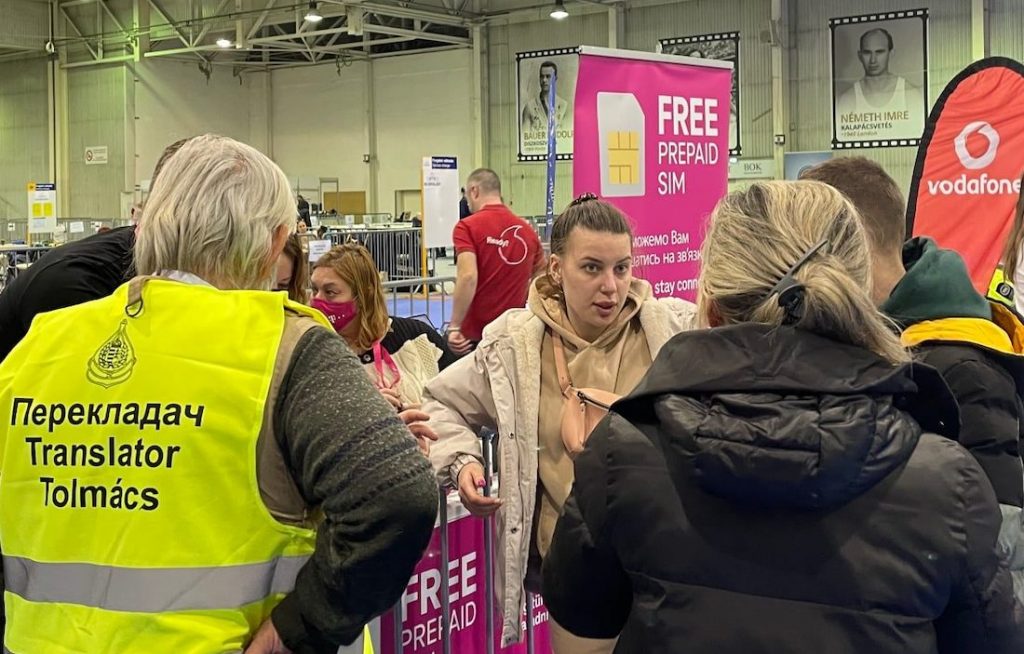
A related problem is how Hungarian authorities calculate the number of people they have provided help to. On 16 March, MÁV, the Hungarian national railway, announced that over 100,000 solidarity tickets had been made available. However, since the beginning of the war, Hungarian authorities had processed only 11,000 residence permit applications by the 5th of April.
The primary explanation is that an overwhelming number of Ukrainians only travel through Hungary, with their journey often ending in western or northern Europe. This important detail is kept hush-hush by the Budapest government. Moreover, instead of automatically registering and accepting residence applications – as the European commission spokesperson in charge recommends – authorities only do so after those who arrive request it, unlike neighbouring Austria, for example.
For years, the Orbán government demonised the mostly Afghani, Syrian and Iraqi refugees approaching its borders. The same campaign of deceit would obviously not work this time round. Especially when the refugees are white, Christians from a neighbouring country
All of this points to a government attempting to falsely inflate the number of people reaching the EU through its borders. And the reason is simple: opportunism.
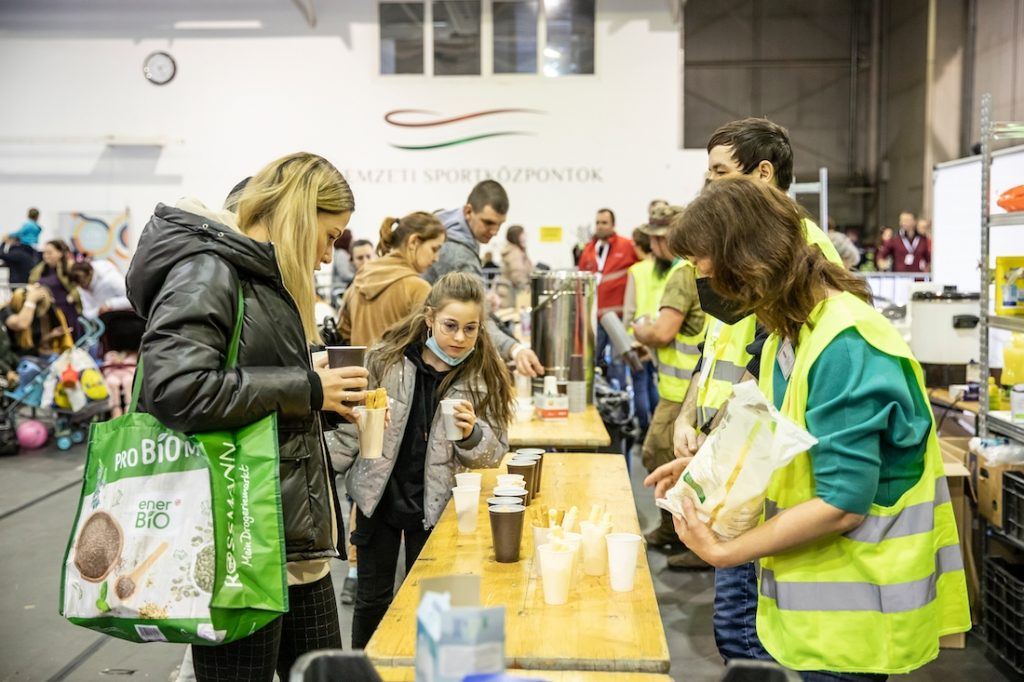
For years, the Orbán government demonised the mostly Afghani, Syrian and Iraqi refugees approaching its borders, running an all-out communication war since the heights of the 2015 migration crisis. The same campaign of deceit would obviously not work this time round. Especially when the refugees are white, Christians from a neighbouring country, and even more so when tens of thousands of these new arrivals are Hungarian-speaking minority Ukrainian citizens from the border region Hungarians call “Kárpátalja”, on the other side of the Schengen border, “Zakarpattia Oblast”.
The Orbán government has thus opted for a different strategy, one that is in line with the EU’s ostensible policy of receiving large numbers of Ukrainian war refugees. It is worth noting that the authorities go to great lengths to keep Ukrainian asylum seekers separate from “the rest” who reach the country.
Civil society sources told Voxeurop that in the city of Debrecen, located 30 km from the Ukrainian border, there is a massive asylum reception and shelter facility that has been closed since the government installed unlawful reception centres on the border which are still running despite a European Court ruling. No Ukrainian migrants are directed here.
According to all NGO and civil society sources we spoke to, accommodation for Ukrainian war refugees is almost entirely arranged by private and civil society organisations, despite the available reception centre capacity. The political motivation behind this artificial differentiation between people in desperate need is easy to spot.
The context:
By now over 4.2 million people have left Ukraine. For weeks, the official line in Hungary was that the country had received the second largest number of Ukrainian refugees, after Poland. However, the latest UNHCR statistics tell a different story: Poland received 2,47 million Ukrainian refugees, followed by Romania with 648,000, Moldova with 396,000, and then Hungary with 394.000. And while receiving nearly 400.000 people in a country with a population of 10 million is no small task, the real question behind the figures is, how many of them are actually still in Hungary?

In association with the Evens Foundation
Was this article useful? If so we are delighted!
It is freely available because we believe that the right to free and independent information is essential for democracy. But this right is not guaranteed forever, and independence comes at a cost. We need your support in order to continue publishing independent, multilingual news for all Europeans.
Discover our subscription offers and their exclusive benefits and become a member of our community now!










